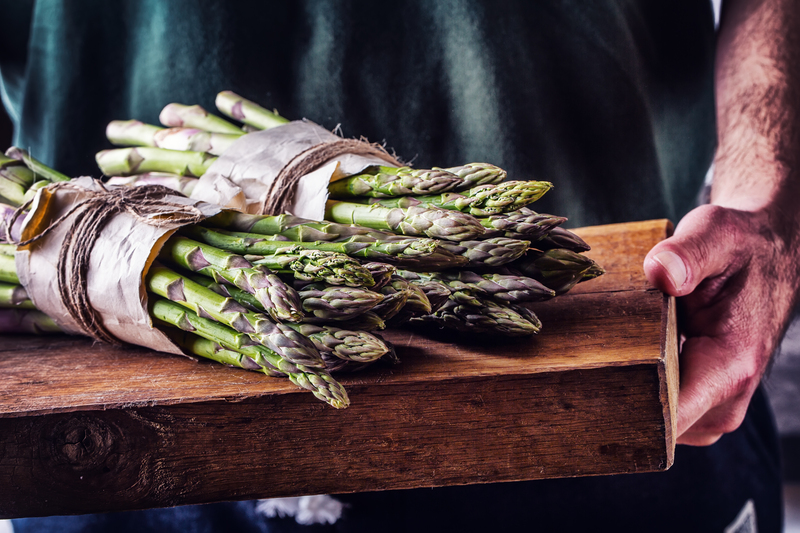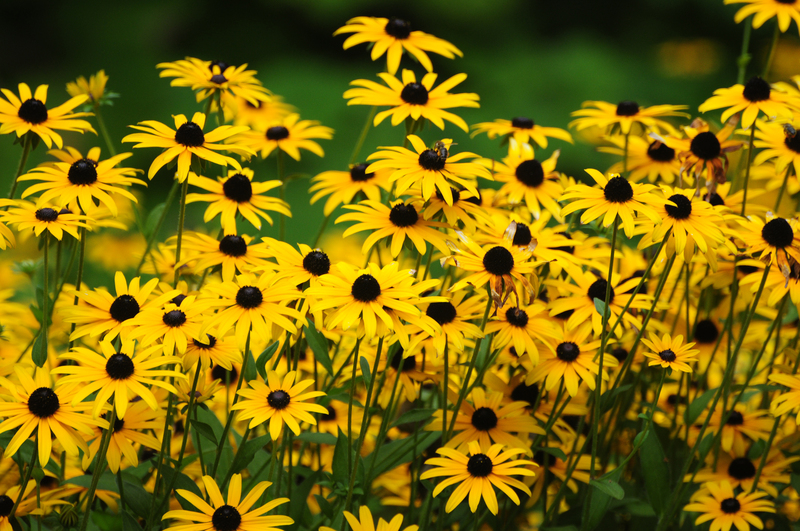Turning Kitchen Waste into Garden Gold
Posted on 24/08/2025
Turning Kitchen Waste into Garden Gold: An Expert Guide
Did you know your kitchen scraps could be the secret to a thriving, lush garden? Turning kitchen waste into garden gold is not just eco-savvy--it's also surprisingly easy and endlessly rewarding. Whether you are an urban gardener or tending a large backyard plot, learning to recycle food waste into valuable compost can transform your gardening game, enrich your soil, and reduce your environmental footprint.

Why You Should Recycle Kitchen Waste into Garden Gold
Every day, households generate tons of food leftovers and peels that end up in landfills. When this organic waste decomposes in a landfill, it releases methane, a potent greenhouse gas. However, by transforming kitchen waste into compost, you create a nutrient-rich soil amendment, reduce land pollution, and help mitigate climate change. Here are a few compelling reasons to consider composting your kitchen scraps:
- Reduce household waste by up to 30% or more.
- Save money on chemical fertilizers and soil conditioners.
- Boost your garden's health and increase vegetable, fruit, and flower yields.
- Encourage beneficial microorganisms that keep your soil fertile.
- Minimize harmful landfill gases and contribute to a healthier planet.
What Exactly Is "Garden Gold"?
Gardeners colloquially refer to well-rotted compost made from kitchen waste as "garden gold." It's a balanced, nutrient-dense material that improves soil structure, enhances water retention, and feeds growing plants all season long. Compost made this way provides an organic option for nourishing your garden without the use of artificial products.
Where Does Kitchen Waste Come From?
Turning food scraps into compost doesn't mean all leftovers are suitable. The key is knowing which kitchen waste can become garden gold and which materials should not be composted.
Safe Kitchen Scraps for Composting
- Fruit and vegetable peels, cores, and rinds
- Coffee grounds and tea bags (unbleached)
- Eggshells, crushed for faster decomposition
- Bread, grains, rice, and pasta (small amounts and unseasoned)
- Nutshells (except walnut, which can be toxic to plants)
- Paper napkins and paper towels (if clean and not saturated with oils)
What to Avoid Adding to Your Compost Pile
- Meat, fish, and dairy products--these can attract pests and create odors
- Oils, grease, or fatty foods
- Diseased plant material
- Glossy paper or chemically treated materials
- Plastic, metal, glass, or synthetic waste
- Large bones or synthetic tea bags and coffee cup liners
How to Turn Kitchen Waste into Garden Gold: Step-by-Step Guide
Step 1: Collect and Store Your Kitchen Scraps
Begin by setting up a dedicated bin or container for collecting compostable food scraps in your kitchen. Keep a small pail with a lid under your sink or on your countertop for easy access. Empty the container regularly onto your main compost heap or bin outside.
Step 2: Create the Perfect Compost Mix
Transforming kitchen waste into nutrient-rich compost requires a balanced mix of materials: "greens" for nitrogen and "browns" for carbon.
- Greens: Fresh kitchen scraps (fruit and vegetable peelings, coffee grounds, tea bags), grass clippings, plant trimmings.
- Browns: Dry leaves, straw, shredded newspaper and cardboard, sawdust, paper towels.
For best results, each time you add fresh kitchen waste (greens), cover it with a layer of browns to maintain the right balance and prevent odors.
Step 3: Maintain Your Compost Pile
Composting is a living process. A healthy compost pile needs air, moisture, and occasional turning. Here's how you keep things moving:
- Turn the pile: Use a garden fork or shovel every 1-2 weeks to aerate the compost and speed up decomposition.
- Check moisture: Compost should be as damp as a wrung-out sponge. Add water if it's dry, or more browns if it's too wet.
- Watch the temperature: Compost piles heat up as microbes break down material. This is a sign things are working!
Step 4: Harvest and Use Your Garden Gold
After several months, your compost will turn into dark, crumbly, earthy-smelling soil--true garden gold. Sift or screen the finished compost to remove large pieces that need more time to decompose. Then, spread your kitchen waste compost around plants, mix it into garden beds, or brew it into compost tea for garden use. Your plants will thank you!
Tips and Tricks for Home Composting Success
- Chop or shred kitchen waste into smaller pieces to speed up decomposition.
- Always cover fresh food scraps with a layer of brown material to deter pests and minimize odors.
- Keep your compost pile in a warm, partially shaded, well-drained spot.
- Don't forget to turn and aerate your pile regularly--oxygen is essential for fast composting.
- If your compost smells bad, it's probably too wet or has too much green (nitrogen) material. Add more browns and stir thoroughly.
- In colder climates, composting slows during winter. Continue collecting kitchen waste and add it as conditions warm up.
Turning Kitchen Waste into Garden Gold: Composting Methods
Traditional Compost Pile
The most common DIY method, a compost heap or pile can be created in a corner of your yard. Layer kitchen scraps with yard waste in alternating fashion, turning the pile every couple of weeks. This method works best if you have space and a steady supply of organic material.
Compost Bins and Tumblers
If you have limited space or want to avoid a messy pile, consider a composting bin or tumbler. These containers help contain odors, keep out pests, and are easy to turn or rotate. Tumblers can produce finished compost within 2-3 months in optimal conditions.
Vermicomposting: Worm Bins
Worm composting, or vermiculture, uses red worms (Eisenia fetida) to turn kitchen scraps into high-quality compost or "castings." This is perfect for apartment dwellers or anyone with limited outdoor space. Worm bins can be kept indoors and produce small amounts of extremely rich compost for potted plants and gardens.
Bokashi Composting
Bokashi is a fermentation-based method originating from Japan. It uses special bran inoculated with beneficial microbes to ferment rather than rot kitchen waste--including small amounts of meat or dairy. The process is typically odor-free and ideal for small kitchens or use in conjunction with traditional composting.
The Science Behind Turning Kitchen Waste into Garden Gold
So how does kitchen waste become compost? Microorganisms such as bacteria and fungi, as well as larger decomposers like worms and insects, break down organic materials in the presence of oxygen. They transform food scraps into humus--a stable, nutrient-dense soil component. During the process, heat is generated, which kills off most weed seeds and potential pathogens, further boosting the safety and quality of your finished product.
- Compost supplies essential nutrients (nitrogen, phosphorus, potassium).
- Improves drainage and boosts soil's ability to hold water.
- Supports beneficial microbes that protect plant roots and suppress diseases.
- Encourages a healthy soil ecosystem, benefiting all plants.
Common Mistakes When Composting Kitchen Waste
- Adding too much of one type of material (e.g., only green kitchen scraps), leading to imbalance and odor.
- Neglecting to turn or aerate the pile, causing slow decomposition or anaerobic conditions (smelly, slimy compost).
- Composting inappropriate items (meat, dairy, oils) that attract pests or slow down the process.
- Letting the pile dry out--microbes need moisture to work!
- Overlooking the importance of proper storage and location (too exposed or inaccessible spot).
Benefits of Home Composting For Your Garden
- Feeds soil and plants naturally, providing all the micronutrients missed by chemical fertilizers.
- Reduces dependence on commercial soil amendments, saving you money.
- Improves plant growth, flower and fruit quality, and overall garden vibrancy.
- Helps regulate soil pH and structure, preventing erosion and compaction.
- Encourages earthworms and beneficial insects, vital for a thriving ecosystem.

Frequently Asked Questions about Kitchen Waste Composting
1. How long does it take to turn food scraps into usable compost?
Depending on method and conditions, composting kitchen waste can take from 2-6 months. Chopping materials finely, maintaining good aeration, and balancing greens and browns accelerates the process.
2. Should I compost cooked food?
Small amounts of plain cooked grains, rice, or pasta are okay. However, avoid foods with oil, dairy, or animal products, as these attract pests and slow decomposition.
3. Can I compost in my apartment?
Absolutely! Indoor worm bins or bokashi fermentation systems let urban dwellers turn kitchen waste into garden gold without outdoor space.
4. What if my compost smells bad?
Most odors come from excess moisture or too many "green" materials. Add browns, turn the pile, and check moisture levels--the smell should quickly fade.
Conclusion: Start Turning Kitchen Waste Into Garden Gold Today
Transforming food scraps into valuable compost is one of the most impactful changes you can make for your home and the environment. By turning kitchen waste into garden gold, you not only reduce landfill waste, but also enhance the quality and health of your soil--naturally and affordably.
Start small: Set up a collection bin in your kitchen and begin saving scraps. Experiment with a compost pile, a bin, or an indoor worm system. Watch as kitchen waste becomes a priceless resource that feeds your plants and improves your harvest each year.
Ultimately, composting is the link between your kitchen and your garden, closing the sustainability loop and creating a flourishing landscape that's good for you and the planet. Your garden will thank you, and so will future generations!
Ready to turn kitchen waste into garden gold? Grab a bin, start saving scraps, and dig in--your garden's transformation begins today!
Latest Posts
Crafting a Backyard Sanctuary for Kids' Adventures
Transform Your Home with Beautiful Orchids
Using native plants as a strategy against climate change

